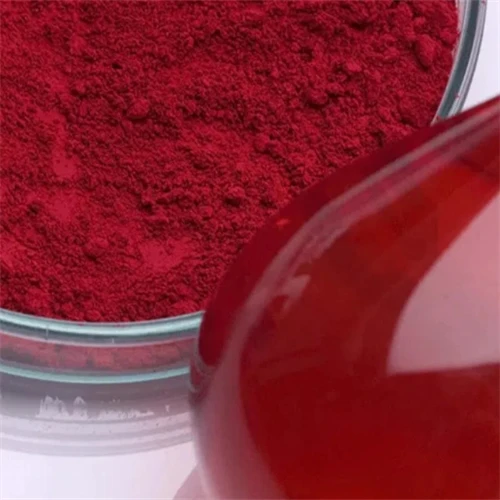Warning: Undefined array key "title" in /home/www/wwwroot/HTML/www.exportstart.com/wp-content/themes/1198/header.php on line 6
Warning: Undefined array key "file" in /home/www/wwwroot/HTML/www.exportstart.com/wp-content/themes/1198/header.php on line 7
Warning: Undefined array key "title" in /home/www/wwwroot/HTML/www.exportstart.com/wp-content/themes/1198/header.php on line 7
Warning: Undefined array key "title" in /home/www/wwwroot/HTML/www.exportstart.com/wp-content/themes/1198/header.php on line 7
- Afrikaans
- Albanian
- Amharic
- Arabic
- Armenian
- Azerbaijani
- Basque
- Belarusian
- Bengali
- Bosnian
- Bulgarian
- Catalan
- Cebuano
- China
- China (Taiwan)
- Corsican
- Croatian
- Czech
- Danish
- Dutch
- English
- Esperanto
- Estonian
- Finnish
- French
- Frisian
- Galician
- Georgian
- German
- Greek
- Gujarati
- Haitian Creole
- hausa
- hawaiian
- Hebrew
- Hindi
- Miao
- Hungarian
- Icelandic
- igbo
- Indonesian
- irish
- Italian
- Japanese
- Javanese
- Kannada
- kazakh
- Khmer
- Rwandese
- Korean
- Kurdish
- Kyrgyz
- Lao
- Latin
- Latvian
- Lithuanian
- Luxembourgish
- Macedonian
- Malgashi
- Malay
- Malayalam
- Maltese
- Maori
- Marathi
- Mongolian
- Myanmar
- Nepali
- Norwegian
- Norwegian
- Occitan
- Pashto
- Persian
- Polish
- Portuguese
- Punjabi
- Romanian
- Russian
- Samoan
- Scottish Gaelic
- Serbian
- Sesotho
- Shona
- Sindhi
- Sinhala
- Slovak
- Slovenian
- Somali
- Spanish
- Sundanese
- Swahili
- Swedish
- Tagalog
- Tajik
- Tamil
- Tatar
- Telugu
- Thai
- Turkish
- Turkmen
- Ukrainian
- Urdu
- Uighur
- Uzbek
- Vietnamese
- Welsh
- Bantu
- Yiddish
- Yoruba
- Zulu
Aug . 13, 2024 00:36 Back to list
Exploring the Role of Xanthan Gum in Enhancing Oil Drilling Efficiency and Performance
The Role of Xanthan Gum in Oil Drilling Operations
Xanthan gum, a polysaccharide produced by the fermentation of the bacterium Xanthomonas campestris, has found significant utility in various industrial applications, including the oil and gas sector. Particularly in oil drilling, xanthan gum serves as a crucial additive, enhancing the performance of drilling fluids and ensuring the efficiency and safety of drilling operations.
In oil drilling, drilling fluids, or muds, are essential for several purposes they help control subsurface pressures, provide lubrication to the drill bit, carry drilled cuttings to the surface, and maintain wellbore stability. Xanthan gum’s unique properties make it an invaluable component of these fluids. As a viscosifier, xanthan gum increases the viscosity of drilling muds, leading to improved suspension of solid particles, which is critical when managing the cuttings produced during drilling operations.
The Role of Xanthan Gum in Oil Drilling Operations
Moreover, xanthan gum contributes to the lubrication of drill bits, which is vital for reducing friction and wear. Improved lubrication not only prolongs the life of the drilling equipment but also enhances the overall efficiency of the drilling operation. This efficiency can lead to significant cost savings, as reduced wear and tear on equipment translates to lower maintenance and replacement expenses.
oil drilling xanthan gum

Another critical function of xanthan gum in drilling fluids is its ability to form a gel-like consistency when mixed with water. This gel formation is essential for preventing fluid loss into permeable formations, a common challenge in oil drilling. By effectively sealing the wellbore, xanthan gum prevents the loss of valuable drilling mud into rock formations, thereby maintaining the necessary pressure and stability during drilling.
Environmental considerations also play a role in the adoption of xanthan gum in drilling operations. As regulations around environmental impact become increasingly stringent, companies are seeking more sustainable and eco-friendly alternatives for their drilling fluids. Xanthan gum, being a biopolymer, is often viewed as a more environmentally friendly option compared to traditional synthetic additives. Its biodegradability and non-toxic nature make it a preferred choice for companies aiming to reduce their ecological footprint while ensuring efficient operations.
Despite its advantages, the use of xanthan gum in drilling fluids is not without challenges. One of the primary concerns is its cost, as xanthan gum can be more expensive than other viscosifiers available in the market. However, many operators argue that the benefits it brings—such as enhanced efficiency, reduced equipment wear, and improved handling of challenging drilling conditions—justify its cost.
In conclusion, xanthan gum plays a vital role in oil drilling operations by improving the performance of drilling fluids, enhancing lubrication, and ensuring the stability of wellbores. Its unique properties make it an effective solution for managing a wide range of drilling conditions, while its environmental profile supports the industry’s shift towards more sustainable practices. As oil companies continue to evolve, the importance of innovative materials like xanthan gum will undoubtedly grow, shaping the future of drilling technologies and practices.
Latest news
-
Certifications for Vegetarian and Xanthan Gum Vegetarian
NewsJun.17,2025
-
Sustainability Trends Reshaping the SLES N70 Market
NewsJun.17,2025
-
Propylene Glycol Use in Vaccines: Balancing Function and Perception
NewsJun.17,2025
-
Petroleum Jelly in Skincare: Balancing Benefits and Backlash
NewsJun.17,2025
-
Energy Price Volatility and Ripple Effect on Caprolactam Markets
NewsJun.17,2025
-
Spectroscopic Techniques for Adipic Acid Molecular Weight
NewsJun.17,2025

